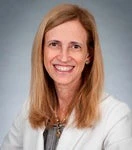
Everyone who has been working on and is devoted to education is about to be confronted with an important deadline: the target date for reaching the Millennium Development Goals (MDGs) is 2015.
On May 19-22, the World Bank Group- along with other UN agencies, ministers of education, civil society organizations, and other key players- will be revisiting the targets we’ve established 15 years ago in Dakar and will be putting together a powerful new education agenda that will transform lives in the years to come.
I’m really excited about participating in the upcoming World Education Forum in Incheon, Korea, where World Bank Group President Jim Yong Kim, my colleagues, and I will be making the moral and economic case for learning and equity in education.
The importance of true learning
Looking back, we should celebrate the gains that we’ve made. The developing world has made huge progress during the MDGs era. In 2012, 184 million children were enrolled in pre-primary education worldwide, an increase of nearly two-thirds since 1999. Net enrolment ratios improved significantly, rising at least 20 percentage points from 1999 to 2012 in 17 countries, 11 of which were in sub-Saharan Africa. However, there is still much that can be done.
As we adopt a bigger and bolder education agenda in 2015, getting all children into school is one of the challenges ahead. I’m very concerned about the 250 million children who are in school but are not learning basic reading, math, and the essential cognitive and non-cognitive skills they’ll need in life.
I’m also worried about the students who have to leave school…and then return to the same grade older than their classmates. In my native Brazil and other countries in the world, it’s not uncommon to hear the story of a boy or girl dropping out at the seventh grade to work and help their families and then, when circumstances improve, return to the same grade as a teenager. There needs to be a strategy so that they can get up to speed when they return and are in the age-appropriate classes or, better yet, stay in school.
If we want to ensure learning, we have to empower teachers by providing them with the tools that will help them and their pupils excel in the classroom. This means giving them textbooks and access to technology so that their subjects come alive and become interesting to students.
We need to also talk about adequate assessments. Students are assessed but so should teachers and school management. For a school to improve, timely feedback must be given to teachers so that they can adjust their teaching style to the needs of students. Ideally, the assessments will help the teacher tailor classes to those students who need remedial work or to the bright sparks who can advance further with extra work.
Equality of opportunities for all
I recently read “Our Kids” by Robert Putnam, an intriguing book about equity which argues that class advantages begin in the womb and grow wider at every life stage. According to Putnam, the type of schools based on socio-economic background exacerbate this inequality of opportunities. For instance, a poor student would not be able to take part in extracurricular activities or classes that foster good grades and better skills (such as piano classes, science camp, and sporting events) that would otherwise be available to a student from a well-off background.
Here’s the thing about education: it’s the best way to level the playing field but it can also be harmful if not done well. For example, if countries invest only in the smartest kids then it isn’t fair. If countries provide the same funding to all schools (even those populated by rich students) then it’s detrimental to equality.
Equality must be embedded in school systems. In particular, we need to look at the regions or provinces where children are poorest and hardest to reach or where they go to school but have less hours of study. Let’s build school systems that offer the same or similar opportunities for all.
The World Education Forum
I will be tweeting throughout the World Education Forum so do follow me at @ClaudiaCostin and @wbg_education. If you’d like to share your ideas on how to improve learning and equity, you can post these below or tweet using the hashtag #worldeducationforum.


Join the Conversation